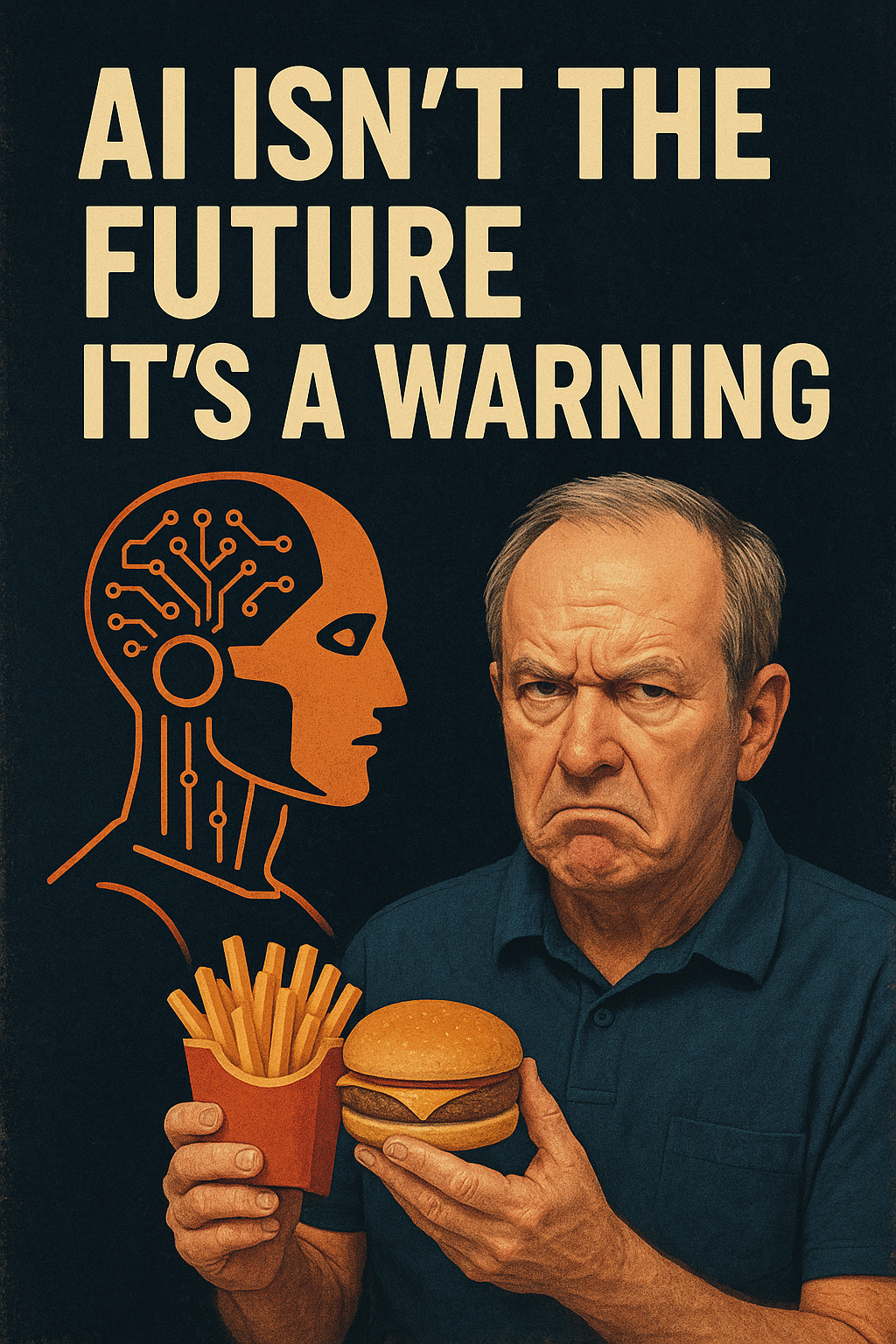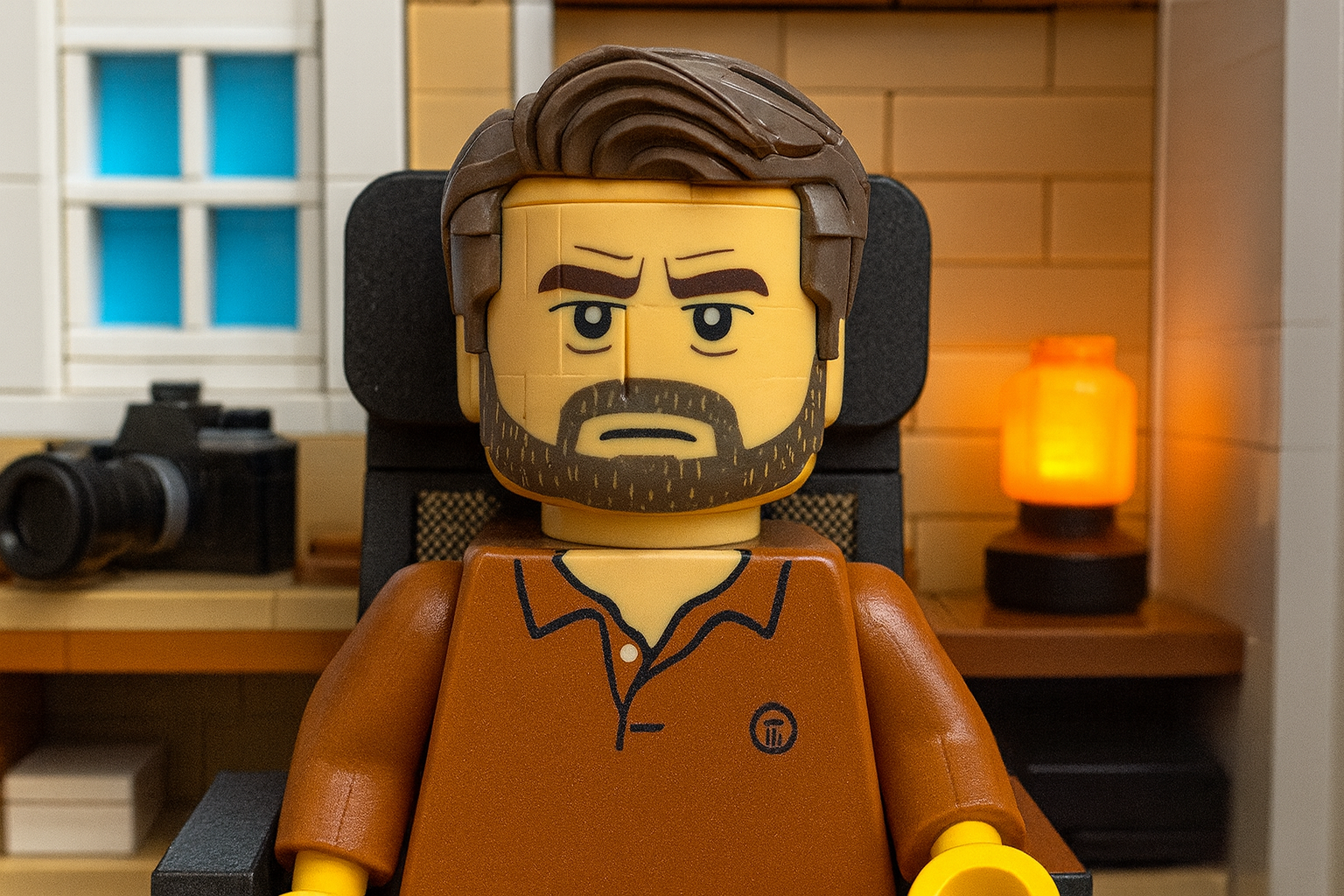AI is not the future it is a warning¶
I have been working in IT for over 25 years. I have seen trends come and go, from mainframes to cloud, from on-prem to “as-a-service”, from bash scripts to Kubernetes. Each time, the story was the same: this will change everything. And each time, after the noise settled, the same truth returned that if you did not understand what you were doing before, you still do not now.
But AI? AI is something else. it is not just another tool. it is the moment we stop pretending we care about understanding, and start outsourcing thinking completely.
And the most dangerous part? Everyone seems fine with it.
This is not a fear of change. it is a recognition of the pattern. We have entered a phase in tech where results are more important than reasoning. Where looking smart beats being smart. Where output is king, and process is optional.
Using AI today feels a lot like eating fast food. We all know it is not healthy. We know we should cook real food, eat more greens, drink more water and move our bodies. But that takes time, energy, and discipline. And when the drive-thru is right there, which is cheap, fast, and kind of impressive at first glance, we go for it. Even if it is killing us slowly.
AI gives us instant answers, instant code, instant solutions. No learning curve. No struggle. Just ask, copy, paste, move on. It does not matter if the answer is wrong or shallow, just if it gets through the meeting or passes the test, it is good enough. Like fast food, it is engineered to be satisfying in the moment, not nourishing in the long run.

Over time, we lose the ability and the will to cook from scratch. We forget the ingredients. We do not question the source. We become dependent on convenience. And we tell ourselves We are being efficient, when We are actually becoming helpless.
In tech, that helplessness looks like engineers who do not know what their systems are doing under the hood. Architects who rely on copy-pasted diagrams. Devs who debug by asking a chatbot. Whole teams who trust opaque models more than their own experience, or even worse, do not have the experience to compare.
AI did not invent this. But it supercharged it.
The scary truth is that most of the real AI, the kind that powers your copilots, your assistants, your recommendation engines, runs in hyperscale environments owned by a handful of US companies. They train the models. They own the hardware. They shape the responses. Europe, once again, is stuck playing catch-up and is talking about ethics while using tools built somewhere else, under someone elses rules.
And as we have seen before, regulation is slow, and markets move fast. Just like we handed over our data to public clouds, We are now handing over our reasoning. Not because we have to. But because it is easier.
Inside the tech culture, we have been feeding this problem for years. Real engineering takes time. it is not always flashy. it is hard to “demo” deep understanding. So we shifted focus. We started rewarding speed, shortcuts, packaging. We promoted people who could move fast and talk big. AI fits perfectly into that model. It gives the illusion of competence, without requiring any.
We are watching the slow erosion of the craft.
I am not against AI. I use it. It can help, when used with caution and context. But I do not trust it blindly. I do not let it write code I will not review. I do not let it make decisions I would not make myself. And I do not accept a future where this industry turns into a prompt factory where deep skill is replaced by shallow output and judgment is handed over to something nobody can fully explain.
Just like fast food, the problem is not that it exists. The problem is what happens when it becomes the default.
A society that eats only fast food ends up sick. A tech industry that builds only with AI ends up hollow.
We already know what is healthy. We know how to write robust code, how to design secure systems, how to think critically about risk. But it takes effort. And somewhere along the way, we stopped valuing effort.
If we keep going like this, we will lose more than jobs. We will lose the knowledge that built everything we rely on. We will be surrounded by systems we cannot explain, cannot maintain, and cannot fix. And when things go wrong, as they always do, we will not know where to start.
That is not progress. That is surrender.
And once we have outsourced our ability to think, no amount of innovation will bring it back.
